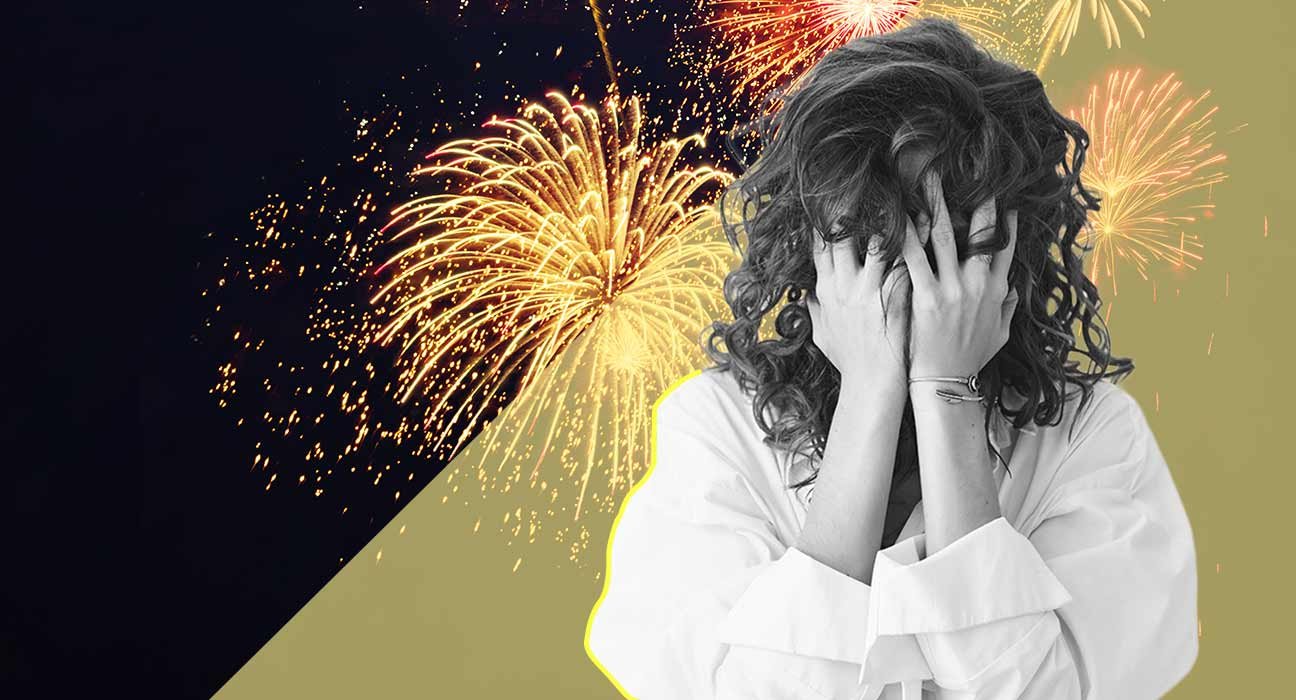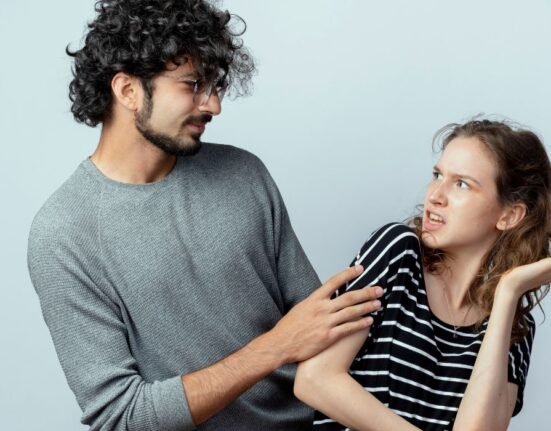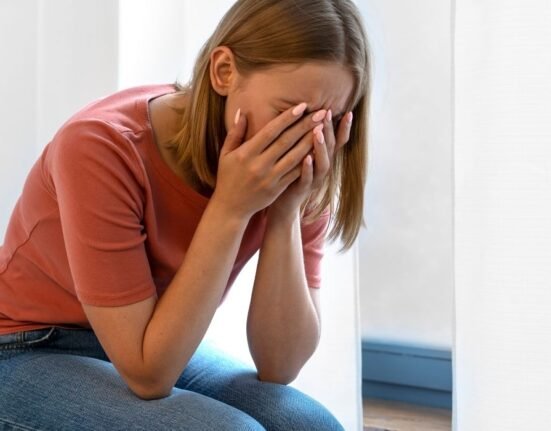The seasonal depression or anxiety that comes with the holidays is known as the “holiday blues.” These pressures—shopping, social gatherings, and the expectation of a wonderful holiday—can be taxing. Additionally, you might be missing loved ones or experiencing bad emotions resurfacing from previous holiday memories. The term “post-holiday blues” describes the fleeting emotions that people feel following the holidays, such as melancholy, loneliness, exhaustion, disappointment, lethargy, mental discomfort, or even dread of the approaching winter season.
Post-blues: What is it?
This slump, which is sometimes referred to as post-vacation syndrome, stress, or sadness, can strike hard following a period of high emotion and stress. Many of the typical symptoms of anxiety or mood disorders, such as sleeplessness, poor energy, irritability, difficulty concentrating, and anxiety, are also shared by post-holiday blues. The holidays themselves may be unpleasant for some people due to high expectations, tough family relationships, reminders of loved ones who have passed away or become alienated, and financial obligations. Those who appreciate the holidays could have an increase in the feel-good chemicals serotonin and dopamine following social interactions.
also read: 12 Commonly Asked Questions about Depression
The sudden conclusion of the Christmas season can often cause confusion and the blues after the holidays. “It can be difficult to deal with the weariness that comes with hosting, travelling, or any other aspect of the disrupted routine that the holidays bring.” The post-holiday blues can be exacerbated by changing seasons, less daylight, less physical activity, and more seclusion.
When Does the Post-Holiday Blues Turn into Something Worse?
It’s crucial to monitor how long you’ve been depressed after the holidays because the symptoms of the post-holiday blues, such as melancholy, lack of motivation, sleep difficulties, or irritability, might resemble those of severe depression, according to Torres-Mackie. According to Torres-Mackie, “depression involves low mood for most of the days for two weeks or more.” “The post-holiday blues won’t last as long and won’t have as negative an impact on your everyday activities. Additionally, they will be tailored to the period following the holidays.
Also Read: Habits to Help in Avoiding Depression
It could be worthwhile to consult a healthcare professional if symptoms of the post-holiday blues start to interfere with your ability to go about your everyday activities, such as difficulty getting out of bed, going to work or school, leaving the house, spending time with people, or doing small tasks.
“People with the blues often experience a run of bad days that pass, but if you are experiencing depression and sadness daily for two weeks or longer, you might want to consider getting in touch with someone for more support or assistance.”
Ways to Handle the Blues After the Holidays
Basic lifestyle modifications can assist if you are feeling the post-holiday blues or want to avoid them in the future. After the holidays, try these strategies to shake off your bad mood:
1. Don’t use Drugs or Alcohol:
Avoiding drugs and alcohol may help people who are depressed or nervous since these substances have the ability to intensify negative emotions and make them more difficult to control or understand.
Read: The Jellinek Curve: Five Phases of Alcohol Addiction
2. Be Unselfish:
It’s a good idea to divert your attention by focusing on others if you discover that you are obsessive about your feelings after the holidays. Spend some time volunteering, or if you don’t have much time, resolve to perform one tiny deed of kindness each day, like offering to listen to a friend who is having trouble or grinning at a stranger. Assisting others will not only divert your attention from your emotions but also enable you to view things more objectively. In addition, you’ll feel happier helping others smile and smiling yourself into a better mood.
Read: Depression: Symptoms, Causes, Types and Treatment
3. Engage with Some exercises:
Holiday stress can cause people to deviate from their exercise regimens, but regular exercise can help with anxiety and depressive symptoms. Get relatives or friends to work with you to help you stay motivated, or pick enjoyable activities to keep yourself occupied so you can start working out again.
4. Conquer Your Fears:
There is no better way to get motivated after the holidays than to push yourself a little and take some chances if you are feeling drained and uninspired. Aim to do one action each week (or day) that pushes you outside your comfort zone and gives you anxiety. Overcoming your concerns will undoubtedly make you feel better, whether they are tiny (like striking up a conversation with a stranger) or large (like moving abroad).
Read: What’s the Worst That Could Happen? : Fear of Risk And How to Overcome It
5. Make time for Sleep:
Obtaining adequate sleep each night is crucial for preserving mental well-being and averting long-term health issues like obesity, diabetes, hypertension, stroke, and psychological anguish. It is advised that adults (18 years of age and up) sleep for at least seven hours every night.
6. Consume A Healthy and Well Balanced Diet:
People may choose higher-fat and higher-sugar foods over the holiday season as a result of feeling more stressed or anxious. Try to incorporate or swap out healthier foods, such as fresh fruits and vegetables, into your meal plan to preserve your healthy eating habits during the holidays and in the days that follow.
7. Make Contact with Family or Friends:
You can stay connected and not feel alone by leaning on your friends and family. Having close relationships with others may also be beneficial in guiding you through this difficult time. Sharing this emotion with someone will help you feel less alone because it’s probable that someone close to you can connect to it as well.
Read: Seasonal Affective Disorder
8. Plan your Activities ahead of your time:
If people do not have something to look forward to after the holidays, Hollingshead suggests that they may be more susceptible to the post-holiday blues. “If the last few months have been focused on preparing for the holidays,” Hollingshead said, “then ideally you would have something else, like a trip or activity, that you’re looking forward to after the holiday break.” Whether it’s a major or small task, planning might help you maintain a happy mood after the holidays.
9. Try a Novel approach:
When planning future events, you can go with a tried-and-true option like booking a game night with close friends or dining at your favourite restaurant. However, you might also give a novel activity a shot, such as signing up for a dance class you’ve been eyeing for a while or attempting a new cuisine at home. we frequently lose motivation to do things when we feel blue or depressed. “Scheduling activities in advance encourages us to be responsible and take actions that ultimately improve our feelings of well-being.”
Conclusion
The seasonal depression or anxiety that comes with the holidays is known as the “holiday blues.” These pressures—shopping, social gatherings, and the expectation of a wonderful holiday—can be taxing. Additionally, you might be missing loved ones or experiencing bad emotions resurfacing from previous holiday memories. However, it can also be a time of painful introspection, loneliness, melancholy, anxiety, and depression for certain people.
The holiday blues may strike anyone, even those who adore the occasion. Many people experience high levels of emotion and demands during the holidays, which can leave them feeling tense and worn out. Maintaining your regular self-care and mental health routine during the holidays can help reduce unwelcome stressors or negative emotions that may resurface during the post-holiday blues. These routines can include weekly outpatient therapy, morning meditation, attending community support groups, daily exercise, or specific self-care rituals.
Read these Books on Festivities 🙂
- “The Christmas Carol” by Charles Dickens
- “Holidays Are Hell” by Kim Harrison, Lynsay Sands, Marjorie M. Liu, and Vicki Pettersson
- “A Long Way Down” by Nick Hornby













Leave feedback about this